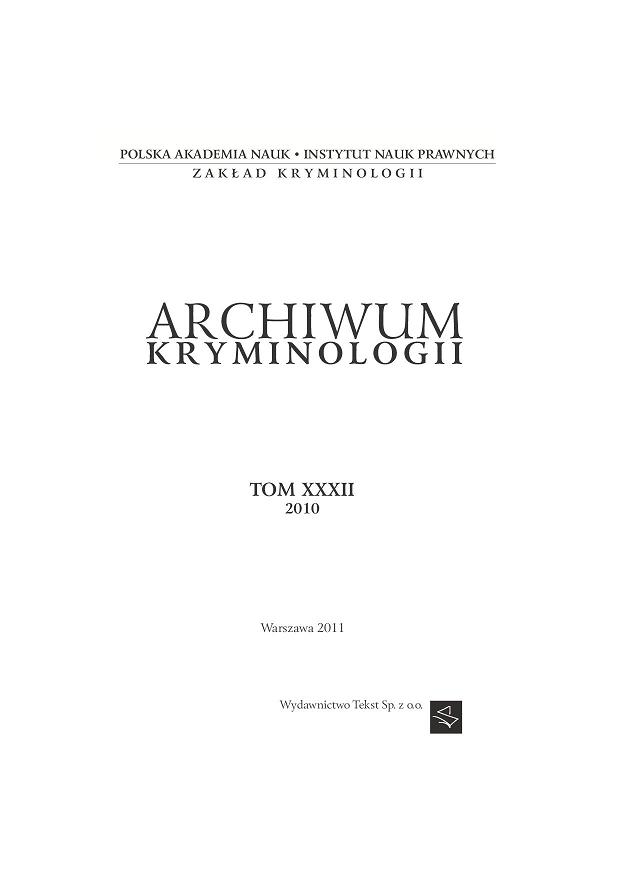Kryminologia kulturowa. Wprowadzenie do koncepcji
Cultural criminology. An introduction to the concept
Author(s): Edyta DrzazgaSubject(s): Law, Constitution, Jurisprudence
Published by: Instytut Nauk Prawnych PAN
Keywords: CULTURAL CRIMINOLOGY;
Summary/Abstract: Cultural criminology which emerged in the 1990s, based on new criminology of Taylor, Walton, Young, and the achievements of National Defiance Conference and British studies of subcultures, can be regarded as part of the critical approach to the phenomenon of crime. Since it first appeared, cultural criminology has tried to adjust the point of view on crime by engaging various perspectives. By principle, cultural criminology is supposed to challenge conventional criminology and provide a distinguishable alternative. Its distinctive features are emphasis on cultural components (i.e. style, symbols, meanings, emotions and media information) in investigating the phenomenon of crime and use of postmodernist interpretation in the analyses. Cultural criminology, by placing crime and crime control in the context of culture and regarding them as cultural products, focuses on the way in which social actors – all potential participants to the phenomenon of crime, i.e. offenders, victims, organs of social control, journalists and reporters – construe meaning and attribute it to delinquency, act of crime and each other. One of the key problems of cultural criminology is critical reflection on the postmodern world, that is a world in constant flux, marked with the processes of marginalisation and social exclusion but also ambiguous potential of creativity, transcendence, and transgression. In a series of conceptions, one can find references to such symptoms of postmodernism like, on one hand, consumerism fuelled by the media, imperative of expressiveness and ever increasing significance of personal development, on the other hand decreasing job security and family ties stability, pluralism of values enhanced by migration and global conflicts. What results from the clash of these opposite forces is increasing loss of sense of security of the a modern man and in collective categories, loss of public confidence. The vision of society assumed by cultural criminology is a society based on conflict, and all explanations of subcultures must include current relations of power and patterns of social inequality. At the same time, accepting M. Weber’s statement that culture is a network of meanings which are continuously created by a man and in which a man is suspended, it is postulated to seek these meanings by interpretation. Such assumptions concerning culture and means of its examination, along with the conflict-based vision of society, puts cultural criminology at the charge of combining various methods of explanation assumed by social sciences. In ethnographic studies in the area of cultural criminology the pursue of meaning by thorough exploration of cultural practices is reserved only for deviant subcultures. The world of social control is labelled with terms in line with conflict orientations in criminology.
Journal: Archiwum Kryminologii
- Issue Year: 2010
- Issue No: XXXII
- Page Range: 5-22
- Page Count: 18
- Language: Polish

